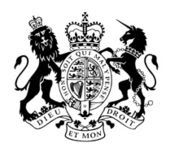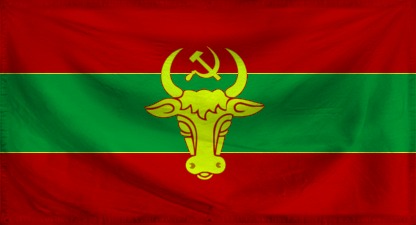

![]() by Tahuantinsuyu Empire » Sat Jul 04, 2009 9:43 am
by Tahuantinsuyu Empire » Sat Jul 04, 2009 9:43 am

![]() by Gurguvungunit » Sat Jul 04, 2009 3:11 pm
by Gurguvungunit » Sat Jul 04, 2009 3:11 pm


![]() by Tahuantinsuyu Empire » Mon Jul 06, 2009 12:24 pm
by Tahuantinsuyu Empire » Mon Jul 06, 2009 12:24 pm

![]() by Beth Gellert » Sun Jul 12, 2009 4:49 pm
by Beth Gellert » Sun Jul 12, 2009 4:49 pm

![]() by The Crooked Beat » Fri Jul 17, 2009 5:13 pm
by The Crooked Beat » Fri Jul 17, 2009 5:13 pm


![]() by Tahuantinsuyu Empire » Mon Jul 27, 2009 8:25 pm
by Tahuantinsuyu Empire » Mon Jul 27, 2009 8:25 pm

![]() by The Crooked Beat » Thu Jul 30, 2009 6:59 pm
by The Crooked Beat » Thu Jul 30, 2009 6:59 pm

![]() by Nova Gaul » Mon Aug 10, 2009 12:56 pm
by Nova Gaul » Mon Aug 10, 2009 12:56 pm

![]() by Tahuantinsuyu Empire » Tue Aug 11, 2009 10:12 am
by Tahuantinsuyu Empire » Tue Aug 11, 2009 10:12 am

![]() by Vecron » Tue Aug 11, 2009 12:45 pm
by Vecron » Tue Aug 11, 2009 12:45 pm
The Roman Caesar brings you greetings oh great leader of the Inca. Please accept the representative of the Roman Empire that is enroute to you. It is hoped that you would accept him warmly and with the arm of friendship that we here extend to you. God's blessing Sapa Inka,
Caesar Romulus

![]() by Nova Gaul » Tue Aug 11, 2009 4:34 pm
by Nova Gaul » Tue Aug 11, 2009 4:34 pm

![]() by Spyr » Tue Aug 11, 2009 4:53 pm
by Spyr » Tue Aug 11, 2009 4:53 pm

![]() by Tahuantinsuyu Empire » Thu Aug 20, 2009 4:52 pm
by Tahuantinsuyu Empire » Thu Aug 20, 2009 4:52 pm

![]() by Gurguvungunit » Thu Aug 27, 2009 7:44 am
by Gurguvungunit » Thu Aug 27, 2009 7:44 am

![]() by The Crooked Beat » Thu Aug 27, 2009 11:30 pm
by The Crooked Beat » Thu Aug 27, 2009 11:30 pm

![]() by Tahuantinsuyu Empire » Fri Aug 28, 2009 9:49 pm
by Tahuantinsuyu Empire » Fri Aug 28, 2009 9:49 pm

![]() by Gurguvungunit » Mon Aug 31, 2009 2:13 pm
by Gurguvungunit » Mon Aug 31, 2009 2:13 pm

![]() by Tahuantinsuyu Empire » Tue Sep 08, 2009 1:32 pm
by Tahuantinsuyu Empire » Tue Sep 08, 2009 1:32 pm

![]() by Gurguvungunit » Thu Sep 17, 2009 11:11 pm
by Gurguvungunit » Thu Sep 17, 2009 11:11 pm

![]() by Tahuantinsuyu Empire » Sun Sep 20, 2009 10:40 pm
by Tahuantinsuyu Empire » Sun Sep 20, 2009 10:40 pm

![]() by Spyr » Mon Sep 21, 2009 4:02 pm
by Spyr » Mon Sep 21, 2009 4:02 pm


![]() by Gurguvungunit » Thu Sep 24, 2009 1:51 pm
by Gurguvungunit » Thu Sep 24, 2009 1:51 pm

![]() by The Crooked Beat » Wed Sep 30, 2009 10:02 pm
by The Crooked Beat » Wed Sep 30, 2009 10:02 pm
Advertisement
Return to International Incidents
Users browsing this forum: European Federal Union, Google [Bot], Rusrunia
Advertisement